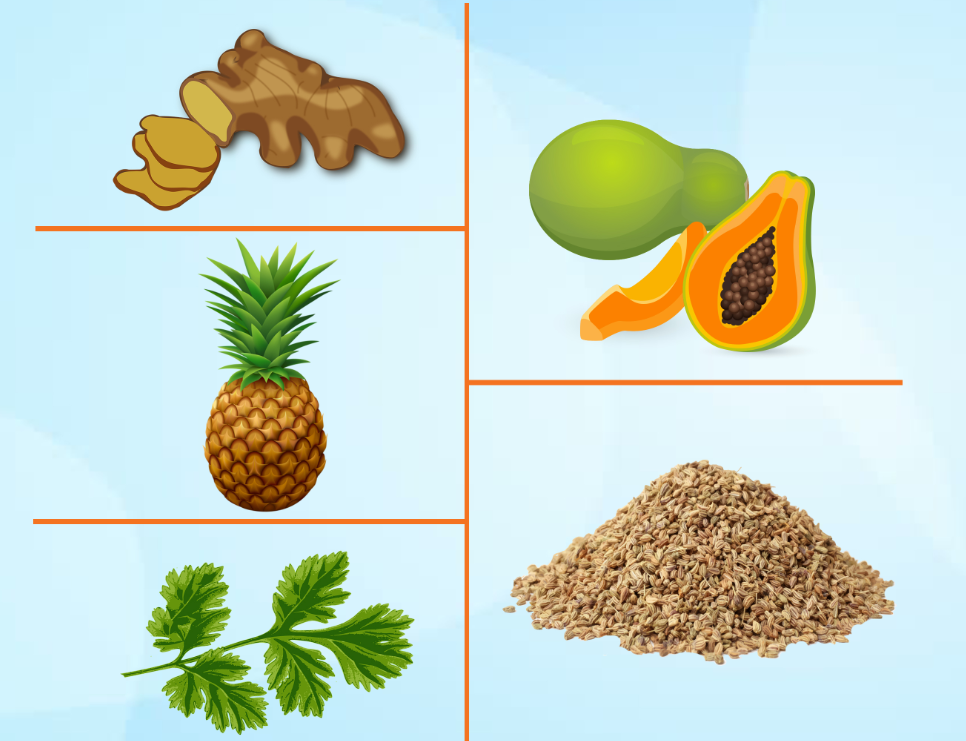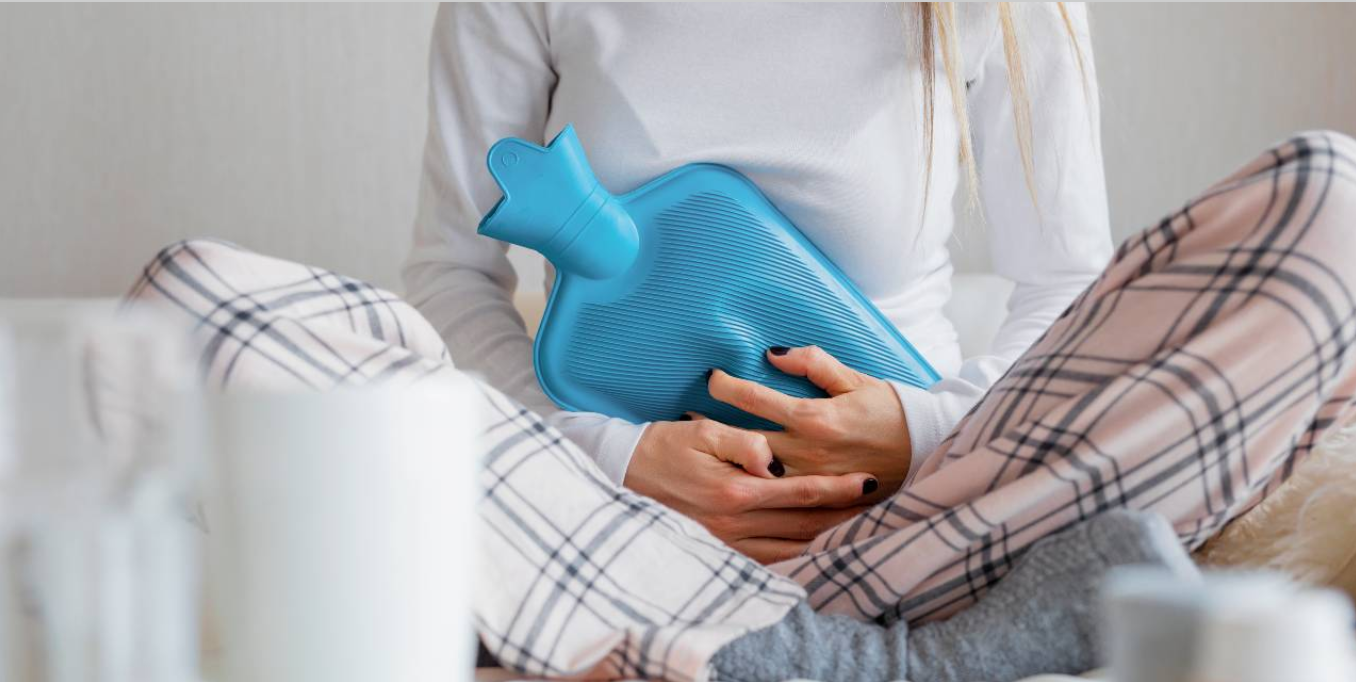There are several natural methods that you can use to induce your period. One popular remedy is maintaining a healthy diet rich in vitamin C and spices like turmeric and ginger, which are believed to help initiate menstruation. Regular exercise is also a key factor as it helps regulate your hormones and maintain a healthy body weight – both crucial elements for a regular menstrual cycle. In addition, certain herbs such as parsley and fenugreek have been used historically to stimulate menstruation.
It’s important to remember that these methods are not guaranteed to work for everyone and it’s always advisable to consult a healthcare professional before trying any new remedy. Another natural method, albeit less common, is the use of warm compresses or taking a warm bath, which may help to relax the muscles and potentially encourage the onset of a period. Lastly, reducing stress through techniques like yoga and meditation can help, as stress is known to disrupt your menstrual cycle. It’s essential to remember that these remedies should be used responsibly and in moderation, as excessive use can lead to other health issues.

Reasons Behind Menstrual Delays
Menstrual delays can be attributed to a variety of factors, many of which relate to changes in the body or lifestyle. One of the main reasons is stress, which can disrupt the balance of hormones needed for menstruation to occur. Similarly, significant weight fluctuations (both loss and gain) can alter hormonal balance and result in irregular periods. Underlying medical conditions, particularly those affecting the reproductive system, such as polycystic ovary syndrome (PCOS) or uterine fibroids, may also lead to menstrual irregularities. Certain medications, including hormonal contraceptives, can also interfere with the menstrual cycle.
Moreover, excessive physical exercise can have a profound impact on menstruation. Athletes and women who engage in strenuous physical activity often experience irregular or absent periods due to decreased levels of estrogen. Another factor to consider is age. As a woman approaches menopause, periods may become less regular before they cease altogether.
Furthermore, pregnancy is a common reason for a delayed period. If menstruation is late and other typical symptoms of early pregnancy are present, it may be advisable to take a pregnancy test. Lastly, breastfeeding can also delay menstruation. It’s common for breastfeeding mothers to have a delay in their cycle resuming, due to the body’s response to lactation.
It’s important for women to monitor their menstrual cycle and take note of any significant changes. If irregularities persist, seeking medical advice can help address any potential issues and provide appropriate treatment if necessary. Understanding the factors that influence the menstrual cycle can empower women to take charge of their reproductive health and seek help when needed. It’s also crucial to remember that each woman’s body is unique, and what is normal for one may not be for another. Variations in menstrual cycles are normal and being aware of one’s own cycle can help in identifying any potential health concerns.
Methods to Induce an Earlier Period
Inducing an earlier menstrual period can be a beneficial approach for individuals who wish to align their cycle with certain events or circumstances. It’s essential to note that manipulating the body’s natural rhythm should always be done under the supervision of a healthcare professional to ensure safety. Various methods exist to induce periods earlier. The most common method is through hormonal birth control pills, which regulate the menstrual cycle by adjusting hormone levels in the body. By skipping the placebo pills in a pack and starting a new pack immediately, it’s possible to induce a period early.
Some natural methods include consuming certain foods and herbs such as parsley, ginger, and celery, which are believed to stimulate uterine contractions, potentially triggering a menstrual cycle. Regular exercises, particularly those that engage the pelvic and abdominal muscles, can also help to kickstart the menstrual cycle. However, these methods are not scientifically proven and may not work for everyone.
Changes in lifestyle, including maintaining a healthy diet, regular physical activity, and managing stress, can also contribute to regulating the menstrual cycle. A high-fiber diet, rich in fruits, vegetables, and whole grains, can help to keep the cycle regular. Regular exercise, on the other hand, can help to reduce menstrual symptoms and regulate periods, while managing stress through mindfulness techniques such as yoga and meditation may also help to maintain a regular menstrual cycle.
Additionally, some medicines called Prostaglandins, prescribed by healthcare professionals, can induce periods. They work by promoting uterine contractions to shed the lining of the uterus.
Regardless of the method chosen, it’s crucial that it is discussed with a healthcare professional to ensure it’s safe and suitable for the individual. Each body responds differently to these methods, and what works for one person may not work for another. It’s also important to understand that these methods should not be used as a form of contraception. An induced period does not necessarily mean that ovulation has not occurred, and pregnancy can still be a possibility.

Warm Compresses or Hot Packs
Warm compresses, also referred to as hot packs, are commonly used in the medical field and at home for various therapeutic purposes. These packs have the ability to provide soothing relief to areas experiencing discomfort or pain. They work by enhancing circulation in the affected area, which simultaneously promotes healing and eases tension. This is achieved as the warmth from the pack causes the blood vessels to expand, thereby increasing the flow of oxygen and nutrients to the muscles and damaged tissues, helping them recover faster.
Hot packs are often used to alleviate pain associated with a myriad of conditions such as arthritis, muscle spasms, back pain, and menstrual cramps, to name a few. Additionally, they can also be beneficial for individuals suffering from sinusitis or congestion as the heat helps to alleviate clogged nasal passages. Furthermore, they can be used to warm up stiff joints and muscles before physical activities to prevent injuries.
However, it is important to remember that while hot packs can provide relief, they are not a cure for underlying medical conditions. They should always be used as directed to avoid burns or other skin damage. Typically, a cloth should be placed between the skin and the pack to prevent direct contact. The application should not exceed 15 to 20 minutes at a time and should never be used on swollen or bruised areas.
In conclusion, warm compresses or hot packs serve as an effective non-invasive method for pain relief and muscle relaxation. Their versatility and ease of use make them a popular choice for managing discomfort. Always remember to use them responsibly, and consult a healthcare professional if unsure about their usage in relation to specific health conditions.
Participate in Physical Exercise
Participation in physical exercise is a crucial element that contributes to both the physical and mental well-being of an individual. This activity is a comprehensive approach to maintaining an optimal level of health and overall well-being. Physical exercise can take various forms, including but not limited to jogging, swimming, cycling, weight lifting, or even engaging in sports activities like football, basketball, and tennis.
The benefits of regular physical exercises are numerous. First and foremost, it plays an instrumental role in maintaining a healthy body weight, thereby reducing the risk of developing conditions associated with overweight and obesity such as diabetes and heart disease. It also has a positive impact on bone and muscle health. Regular exercise strengthens the bones and muscles, which is especially beneficial in the prevention of conditions like osteoporosis.
Moreover, physical exercise is not only beneficial to the body but also to the mind. It has been found to alleviate symptoms of mental health conditions like depression and anxiety. During physical activities, the body releases chemicals called endorphins, often termed as ‘feel-good’ hormones, that help to reduce stress, uplift mood, and promote feelings of happiness and satisfaction.
In addition, participating in physical exercises also boosts energy levels. Engaging in such activities improves muscle strength and endurance, which makes daily tasks more manageable. Additionally, it promotes better sleep by helping individuals fall asleep faster and deepening their sleep.
In terms of social benefits, participating in group exercises or sports activities provides an opportunity to interact with others and make new friends, thereby improving social skills and boosting self-confidence.
In conclusion, participating in physical exercise is vital for maintaining a healthy lifestyle. It is a holistic approach to health that offers a myriad of benefits, from physical to mental and social advantages. Therefore, it is recommended that everyone should incorporate some form of physical exercise into their daily routine to enjoy these benefits and lead a healthier and happier life.

Monitor Your Dietary Intake
Monitoring your dietary intake is an essential step towards achieving a healthier lifestyle. It involves keeping track of what you consume on a daily basis, including meals, snacks, and beverages. This practice allows you to understand your eating habits better and assess whether your current diet is balanced and nutritious. A well-monitored dietary intake can provide valuable insights into your nutritional needs, identify potential deficiencies, and help align your eating habits with your health goals.
By observing your dietary patterns, you can make necessary adjustments to improve your overall health and well-being. For instance, if you notice that your consumption of processed foods is high, you can try to reduce it and include more whole foods like fruits, vegetables, and whole grains. Or if your diet is lacking in protein, you can incorporate more protein-rich foods.
Monitoring your dietary intake is not about strict restrictions or prohibitions, but about making informed choices. It’s about understanding the impact of your food choices on your health and making adjustments where necessary. It can be as simple as keeping a food diary or using a nutrition tracking app. Remember, it’s not just about counting calories, but also about ensuring you’re getting a variety of nutrients from different food groups.
Furthermore, monitoring your dietary intake can also be beneficial if you have specific health conditions like diabetes, heart disease, or food allergies. It can help manage these conditions and prevent potential complications. For example, people with diabetes can monitor their carbohydrate intake to manage their blood sugar levels.
In conclusion, monitoring your dietary intake is a proactive approach to managing your health. It’s a practice that fosters self-awareness and encourages healthier eating habits. So, take charge of your health by keeping an eye on what you eat. Your body will thank you in the long run.
Herbal Teas and Essential Oils
Herbal teas and essential oils have been used for thousands of years in different cultures across the world due to their numerous health benefits. Herbal teas, derived from a variety of plants, flowers, and spices, are rich in antioxidants and vitamins, making them an excellent choice for those seeking to enhance their overall health. Not only are they known to soothe the mind and body, but some studies suggest that they may also aid in weight loss, digestion, and disease prevention.
On the other hand, essential oils, which are highly concentrated plant extracts, are widely used in aromatherapy for their potential therapeutic properties. They are usually inhaled or diluted and applied to the skin for their potential benefits. These oils are believed to stimulate the parts of the brain related to emotion, behavior, and memory, providing a sense of relaxation and calmness. Moreover, certain essential oils are thought to possess antibacterial, anti-inflammatory, and analgesic properties, and are therefore used in natural remedies for various health conditions.
However, it is crucial to remember that the effectiveness and safety of herbal teas and essential oils can vary depending on the quality and the way they are used. Therefore, it is always recommended to seek professional advice before incorporating these natural substances into your daily routine. For instance, some people may experience allergic reactions to certain herbs or oils, and certain oils can be toxic if ingested or used undiluted on the skin.
Despite these precautions, the popularity of herbal teas and essential oils continues to grow as people seek natural and holistic ways to improve their health and well-being. They offer an array of potential benefits – from promoting better sleep to boosting immunity, from alleviating stress to enhancing skin health. Thus, they serve as a testament to the healing power of nature, making them a valuable addition to a balanced lifestyle.

Intimacy
Intimacy, often associated with romantic relationships, is a profoundly important aspect of human connection that transcends mere physicality. It is a multifaceted concept encompassing emotional, intellectual, and physical closeness between individuals. Emotional intimacy involves openness, trust, and mutual respect, fostering a deep understanding between individuals who can share their innermost thoughts and feelings without fear of judgment. Intellectual intimacy, meanwhile, pertains to the sharing of ideas, philosophies, and intellectual pursuits, creating a bond over shared interests and intellectual stimulation. Physical intimacy, often the most recognized form, includes touch and close personal contact, serving as an expression of affection and desire. It’s vital to understand that intimacy isn’t solely confined to romantic or sexual relationships. It also manifests in friendships, familial bonds, and even in the rapport between a pet and its owner. Intimacy’s role in building strong, meaningful relationships cannot be overstated. It fosters a sense of belonging and acceptance, contributing to an individual’s emotional well-being and satisfaction in relationships. However, one must also recognize that intimacy requires time, effort, and mutual consent. It involves building trust, understanding, and respect, making it a continually evolving process. It depends largely on communication, as expressing one’s feelings, desires, and fears is essential for creating an intimate bond. Therefore, being open to vulnerability and maintaining transparency plays a significant role in fostering intimacy. It’s also equally important to respect and understand the boundaries of the other person involved. Nurturing intimacy demands patience, understanding, and a genuine interest in the other individual, making it a rewarding endeavor that enriches human lives.
